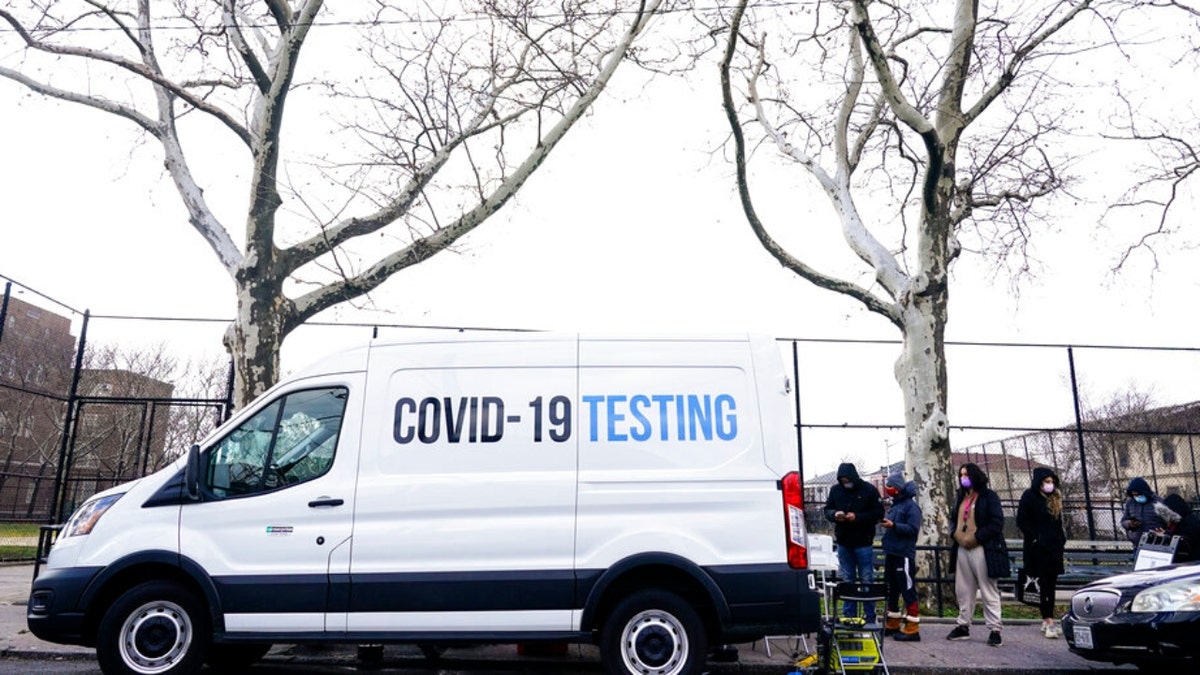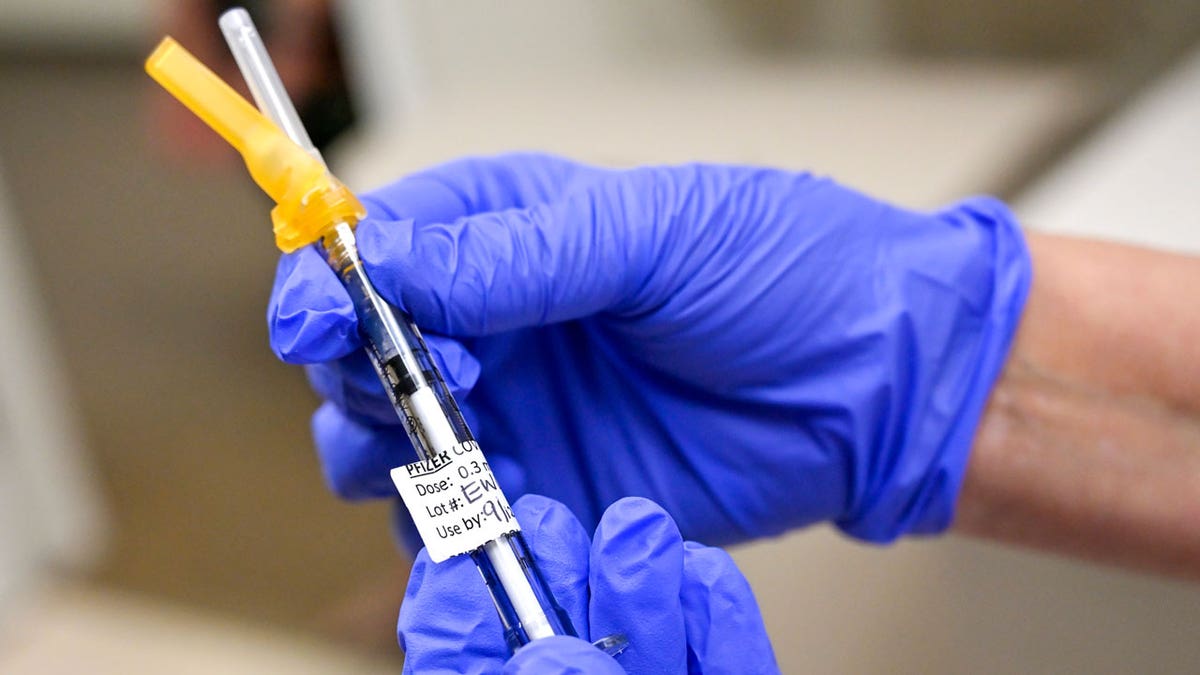Study: Omicron less deadly than earlier variants
Dr. Anne Rimoin discusses where we are in the pandemic and what we can expect going forward on 'Fox News Live.'
The new omicron variant of COVID-19 has nearly made delta obsolete, as it was responsible for 95.4% of all new cases in the week that ended Jan. 1, according to CDC data released Tuesday.
It took only about a month for the new variant to displace delta, as the first case of omicron was detected in the United States on Dec. 1 and it was responsible for just 0.6% of new cases for the week that ended Dec. 4.
Omicron was responsible for 8% of cases by Dec. 11, 37.9% of cases by Dec. 18, and 77% of cases by Dec. 25.

People line up for at a CDC mobile COVID-19 testing location Dec. 23, 2021, in Queens, New York. (AP Photo/Frank Franklin II)
Delta is still dominant in parts of New England and the Plains, but omicron is dominant everywhere else, according to CDC data.
OMICRON'S RAPID SPREAD IS LIKELY DUE TO ITS ABILITY TO EVADE IMMUNITY, STUDY FINDS
The rise of omicron has coincided with a record surge in new COVID-19 cases, as the seven-day average for new cases stood at 316,277 on Dec. 29.
The United States reported 1,082,549 new cases on Monday, according to Johns Hopkins University, but that number may be elevated due to a backlog of cases over the holidays and weekend.
Multiple studies have shown that omicron's rapid spread may be due to the variant's ability to evade immunity offered by both vaccines and previous infection.

Nurse Mary Ezzat prepares to administer a Pfizer COVID-19 booster shot on Aug. 19, 2021, at UCI Medical Center in Orange, California. (Jeff Gritchen/The Orange County Register via AP)
While it may be spreading faster than previous variants, omicron has been associated with milder disease.
A study conducted by Discovery Health in South Africa, where omicron was first identified, found that hospital admissions for adults with the new variant were 29% lower than for those with delta.
COLLEGE STUDENTS FACE UNCERTAINTY AS SCHOOLS GO REMOTE, DELAY RETURN TO CAMPUS
Researchers at the LKS Faculty of Medicine at The University of Hong Kong found that omicron replicates 70 times faster than delta in the human bronchus, but 10 times slower in lung tissue, which may explain why it spreads more rapidly but is responsible for less severe disease.
Vaccines are still effective against illness from omicron, according to a University of Copenhagen study that found a booster shot offered 86% protection against symptoms and 98% protection against severe disease.

Medical staff transport a patient from a COVID-19 ward to the intensive care unit at the Willis Knighton Medical Center in Shreveport, Louisiana, Aug. 17, 2021. (AP Photo/Gerald Herbert, File)
CLICK HERE TO GET THE FOX NEWS APP
New hospital admissions for COVID-19 were up to 10,185 on Dec. 28, an increase over the 6,592 that were admitted on Dec. 1, when omicron was first detected. The seven-day average for new deaths was 1,100 on Dec. 29, an increase over the 879 deaths that occurred on Dec. 1.










































